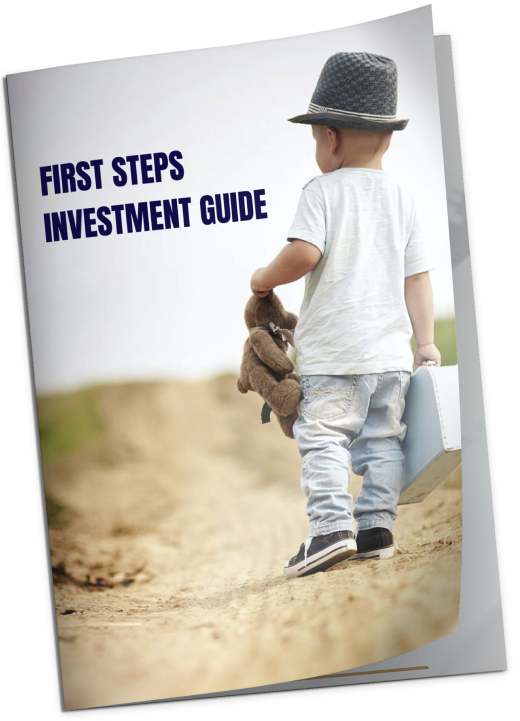We will call you back at +44 876 765 48 within 2 hours up till 7pm or next morning from 9:30am
Determine your current financial situation
Identify and develop financial goals
Create a step-by-step plan to achieve them
Track your progress and make adjustments
Capital portfolio management
Managing your capital via a portfolio account focuses on enhancing the value of your capital using an array of assets that are selected in line with the desired risk strategy selected by the investor.
The vast range of asset holdings that are available in the portfolio makes it a great alternative to bank accounts, as even with a very low risk profile the annual return will be far higher than that of the bank.
The world of investing is almost limitless with an often confusing selection of options, theories and approaches. The portfolio lets you simultaneously hold and trade between the following assets in any mainstream currency: Stocks, Bonds, Funds, Hedge Funds, ETFs, GDRs, Commodities, Physical Gold and Cash. This all means that investments cannot be held as if they were stamps collection; they must be managed diligently in the light of changing markets. It is certainly true that we are witnessing incredible integrations of the global economy, and the speed of the market’s reaction has considerably risen in the last 15 years.
That’s why involving professionals’ help will benefit you over the years.
Being an independent financial firm, GPI Europe is not involved in in-house solutions, which gives rise to a conflict of interests and a vested interest. Our advice is always bespoke to the client’s needs, impartial and cost-effective.
Over the years we have developed our own range of innovative investment management solutions, with unique features, low charges and high service standards. In designing our portfolio proposals, we embraced an open-architecture structural approach.
The core principles of our investment portfolio management:
- Tailored portfolio designs – which suit your financial goals and attitude toward risk
- Integrity of advice – through researching global markets for the best investment options
- Transparency and simplicity – ensuring you understand and engage in our investment strategy
- Minimising costs – focusing on investing in assets without upfront fees or fees for performance
- Spreading risk and opportunity – creating and reviewing a diverse portfolio that helps grow & preserve your wealth
- Advisory and Discretionary management – allowing you to choose how you want to work with us
- Active and passive solutions – helping generate better returns across varying market conditions
- Regular reviews – keeping your investment portfolio in line with your goals

Thank you for your appeal!
We will get in touch with you shortly at pochta@mail.com, to arrange a convenient time for our face to face online meeting
Face to face financial advice online
Feel free to arrange a free online consultation with our financial adviser, in the comfort of your own home or place of work.
Frequently Asked Questions
Is investing money worth a risk?
Everyone knows that investing in the stock market is risky. That’s why many people avoid it! It’s true, there are some risks to consider, but not all these risks are equal.
If there is one secret to investing, it is simply to learn about the risks – and potential rewards – that are at stake. That way, you can calculate how much risk you’re prepared to take and choose investments accordingly to help you achieve your goals.
The outcome of your investment is uncertain for a number of reasons. The markets could do something unexpected. A firm whose shares you own could hit the headlines for the wrong reasons and currency fluctuations could impact the value of your investment.
It’s human nature to crave certainty. So why take a risk with your money? – Well, in short, it gives your money the best potential to grow above and beyond inflation!
Risk and reward go hand in hand. You can’t have one without the other. The lower the risk, the lower the potential returns. The higher the risk, the higher the potential returns – although what you can expect and what you actually get may differ.
If you’d rather prioritise protecting the value of your money, you will have to sacrifice the prospect of greater returns. Finding the balance between the highest possible return and lowest possible risk will depend on your attitude to risk and how long you can invest for.
Can investment risk be managed?
While investment risk cannot be eliminated, it can certainly be managed.
The saying “don’t put all your eggs in one basket” applies perfectly to investments. Instead, you could consider putting your money in a range of investments. That way, if one loses money, it could be balanced out by your other investments. This is known as diversification and it can be an effective method for spreading your risk.
One of the easiest ways to diversify is to buy into a multi-asset fund that contains many investments, so they can be less risky than buying individual shares in a single company. Bear in mind that funds are assigned different risk profiles and that some funds are rated as high risk.
When an investment manager puts together a multi-asset fund, they hand-pick a mix of asset types to cater to a specific appetite for risk. Lower risk funds will typically be made up of cash and fixed interest assets. Higher risk funds will usually feature more shares/equities.
Another benefit of multi-asset funds is they’re professionally managed to ensure that they maintain their risk level. Again, this can make them less risky than investing directly in shares, whose performance is often at the mercy of unexpected events.
What are the benefits of working with capital managers?
- Access to a robust investment strategy designed to create a given return for a given amount of risk.
- Regular quarterly reviews of your circumstances, the plan and portfolio, making changes as required.
- Investment portfolio monitoring, making sure it stays in line with your stated risk profile and strategic asset allocation.
- A clear and fully transparent fee model, with costs minimised wherever possible.
- Work in concert with any other professional advisers you have, making sure your overall strategy is understood by your entire team and executed in a cohesive way.
- Staying in touch with essential advisory alerts to make sure we keep you informed and critically explain what impact macro events might have on you and your plans.
- Your adviser and the team are available to you via telephone and email, to be your first response for any queries or concerns you might have.
- Access to exclusive events throughout the year, introducing you to some of the professionals involved in the management of your finances and combining that with something fun too.
How do capital management services work?
First of all, you will need to set up an investment account that allows the financial company, on your behalf, to manage your assets.
Then accordingly to the previously agreed investment structure, the investment manager will take up his duties.
The manager’s investment decisions are based on a variety of factors, starting with your savings goals (retirement, education, a large purchase) and time frame. You’ll also answer questions to help them assess your risk tolerance, or your ability to endure swings in investment returns and stock market fluctuations. Market conditions, historical performance, tax efficiency and investment fees also inform the manager’s investment strategy.
What does an investment manager do?
An investment manager is a person or company that manages an investment portfolio on behalf of a client. Investment managers develop an investment strategy to deliver on a client’s objectives, then use that strategy to decide how to allocate the client’s portfolio among different types of investments, such as stocks, bonds, ETFs. The manager buys and sells these investments for the client, as required, and monitors the overall return of the portfolio.
Some investment managers are also financial planners, delivering holistic financial advice on topics like cash-flow management, taxes, insurance and estate planning. Others work with high-net-worth clients to address their financial planning and investment management needs, as well as coordinate the services of other professionals, such as lawyers and accountants. This is often referred to as wealth management. Wealth management offers greater areas of expertise, such as estate and tax planning, accounting services and retirement planning in addition to investment management.

Thank you!
Our First steps in investing guide is waiting for you at pochta@mail.com
First steps in investing
Please leave your contact details to receive our First steps in investing guide.